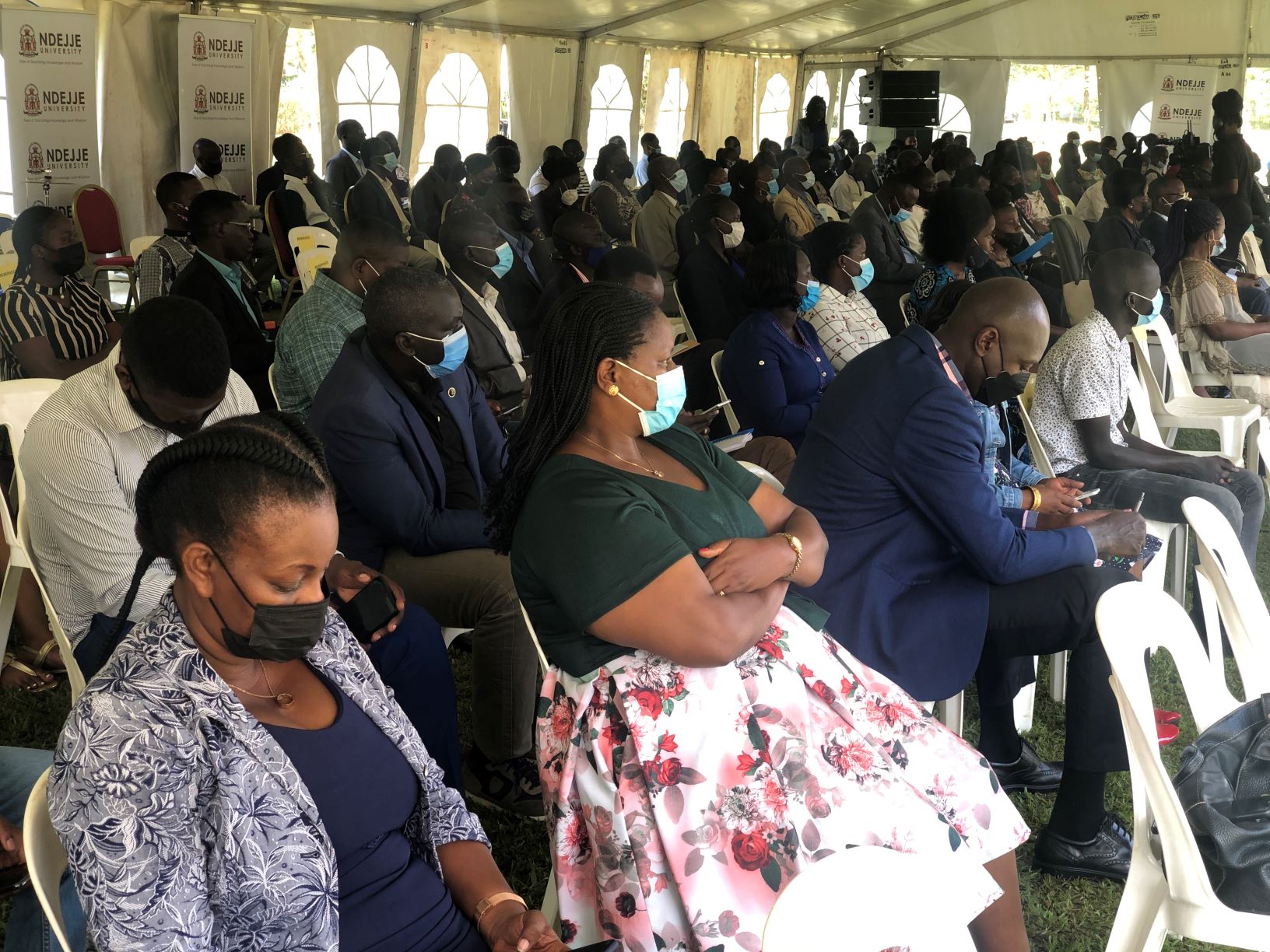Graduands from Ndejje University have been advised to consider entrepreneurship as an option and viable alternative to employment given the challenges that have hit the workplace due to the COVID-19 pandemic.
The call was made by the Chairman of Uganda Bankers’ Association (UBA), Mathias Katamba while giving a commencement lecture to the graduands of Ndejje University conducted under the theme; “Entrepreneurship, Creativity beyond Education in a Crisis Era”.
Katamba noted that the COVID-19 pandemic and its effects has led to major changes in the work places, some jobs may never be the same and the new environment has also presented new opportunities that have not existed before.
Katamba said that the opportunity for entrepreneurship today is supported by a number of factors including global connectivity (internet), unlimited resources and tools for learning, the rise of social media and the availability of alternative funding opportunities such as SACCOS, Investment Clubs, crowd funding among others.
“Despite this, the new age also pauses challenges for entrepreneurs today, for instance; business failure rates remain high, reduced barriers to entry, immense competition, customer expectations are changing, the speed of innovation and the high cost of keeping up plus the cost of regulation, standards,” Katamba said.
He added that, “Even as you ponder on the route of entrepreneurship, it is important to remember that nothing fails like success and therefore, you should be purposeful, delay gratification, build character as opposed to personality, take baby steps, be humble, be courageous in all that you do.

Ndejje University Deputy Vice Chancellor, Frederick Kakembo has called upon the graduands to put to use the knowledge, skills and values that they have acquired at the university.
Kakembo said that in order to survive in the current difficult world, one needs to be very creative, proactive and above all entrepreneurial.
“A twenty-first century education required that students are equipped with nine values which include; critical thinking and problem solving, communication, creativity, collaboration, character, commitment, conviction, courtesy and courage,” Kakembo said.
Kakembo reminded the graduands that the education they have obtained has equipped them with skills that allow them to adopt to the ever changing environment.
“You should think differently and reduce stereotypes and be able to adapt to change. Beyond the Labour market, the skills you have obtained should allow you make your social and physical environment a source of livelihood and sustainability, Kakembo noted.











